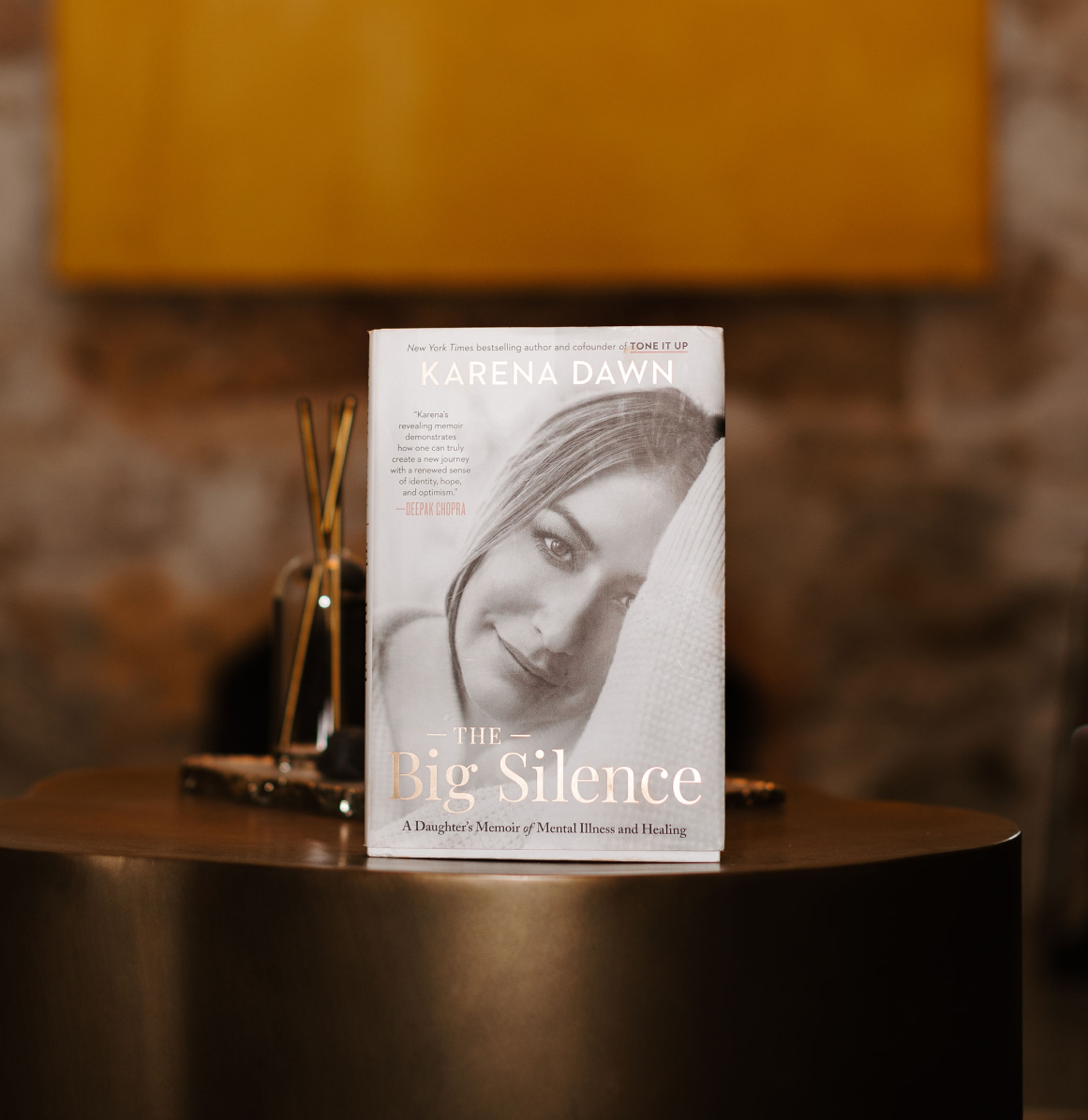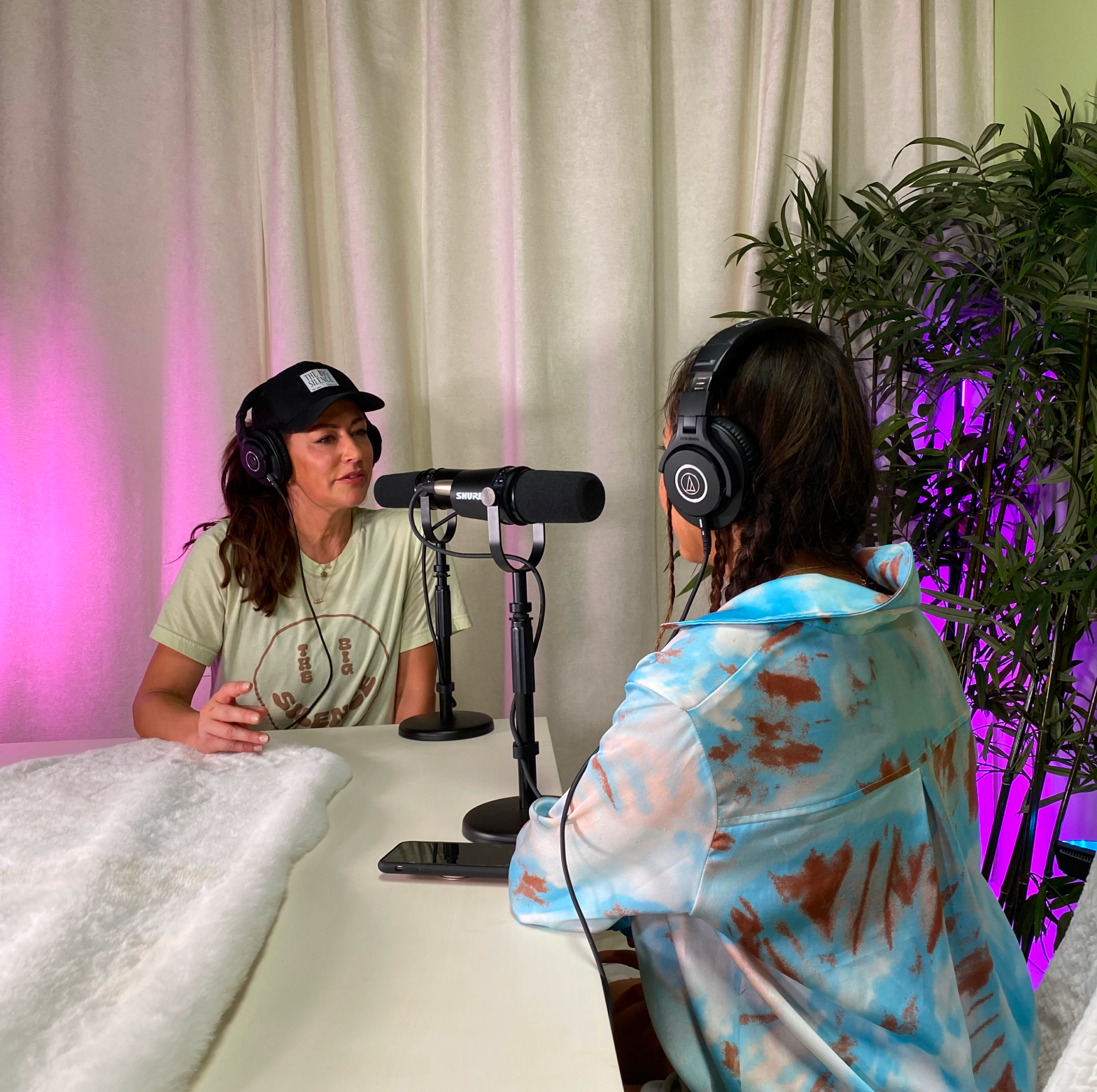
A Candid Conversation Breaking the Therapy Stigma
Join Karena and James for an open and honest conversation about mental health and the importance of seeking therapy. They discuss personal experiences, share insights on recognizing when therapy might be beneficial, and challenge the stigma surrounding mental health treatment.
It's estimated that 1 in 4 adults live with a mental health condition, but only about half of those with a mental health condition receive treatment. One factor that contributes to lack of treatment is stigma.
Normalizing therapy in society is important because it helps to:
- Break down stigma: By openly discussing therapy and its benefits, we can challenge the negative stereotypes and misconceptions that surround mental health treatment.
- Encourage help-seeking: When therapy is seen as a normal and acceptable way to address mental health challenges, people are more likely to seek help when they need it.
- Promote overall well-being: By addressing mental health concerns through therapy, individuals can improve their emotional, psychological, and physical well-being.
- Create a more supportive and understanding culture: When therapy is normalized, it fosters a culture where people feel comfortable talking about their mental health and seeking support without fear of judgment.
Therapy: A Tool for Mental Wellness, Not a Sign of Weakness
Key Takeaways:
- Therapy is a valuable tool for managing a wide range of mental health challenges.
- It's okay to seek therapy at any point in your life, and it doesn't mean you're "crazy."
- There are affordable therapy options available, including sliding scale fees and therapy assistance programs. Check out Therapy for All by The Big Silence.
- Normalizing therapy helps break down stigma and encourages people to seek help when needed.
- Unexpressed emotions and trauma can manifest physically, so addressing them through therapy is crucial for overall well-being.
Who This Video Would Benefit:
- Individuals considering therapy but feeling hesitant or unsure.
- Those who want to learn more about mental health and therapy.
- Anyone interested in breaking down the stigma surrounding mental health.
- Friends and family of individuals struggling with mental health challenges.
Misconceptions and Stereotypes about Therapy Reinforce a Culture of Silence in Mental Health
Rocker Snake Sabo spent years suffering in silence, afraid to talk about his experiences with severe depression, anxiety, trauma, and self-harm. He knows first hand how stigma creates barriers that prevent healing, and now he speaks openly about his journey and shares our passion for breaking the stigma around mental health.
In their conversation, Karena and James share some common misconceptions and stereotypes about therapy that keep people silent. Do you recognize any of them?
Some common misconceptions or stereotypes about therapy that were encountered in the video are:
- Therapy is only for "crazy" people: This harmful stereotype suggests that seeking therapy is a sign of severe mental illness or instability. The truth is that anyone can benefit from therapy. No matter who you are or what you’re going through, “therapy can be an effective tool to understand our own behaviors, relationship patterns, communication skills, and emotions.
- Therapy is a sign of weakness: Some people may view seeking help as an admission of personal inadequacy or inability to cope with life's challenges. But, this is a false belief. Going to therapy takes courage and is a sign of strength.
- Therapy is expensive and inaccessible: While therapy can be costly, there are affordable options like sliding scale fees and therapy assistance programs. Check out the program offered by The Big Silence: Therapy for All.
- Therapy is a one-size-fits-all approach: Therapy is highly individualized, and different approaches and techniques work for different people. We have resources to help guide you to find the right therapist for you.
- Therapy is a quick fix: Therapy is a process that requires time, commitment, and active participation to achieve lasting results. The first few sessions may feel unfamiliar or uncomfortable, but it’s a human process that takes time to connect. It's powerful to be seen and heard by another person!
Normalizing Therapy: We are Meant to Feel
Neuroscientist and psychiatrist Dr. Rabin offers insights into the true cause of depression, ways to start healing trauma, and tips for connecting more deeply with our emotions:
Finding the Power to Keep Living
"Each of us is going to experience, what I call, some kind of rupture. It's the moment things change radically." Kris Carr shares her advice for thriving:
Therapy - a Tool to Take Care of Yourself
Catching up with Karena, Deseray shares the latest tools that she has found helpful for being her most authentic self, including therapy!
Checking in on Your T's
Kati Morton is a licensed marriage and family therapist with a master's degree in psychology. In conversation we cover big and little T traumas, the traits of a good and bad therapist, the cost of therapy, what high functioning depression is, how to overcome the nerves around upcoming therapy sessions.
Curious about Therapy?
The idea of therapy can be scary and intimidating if you’ve never tried it — especially because there is still a stigma attached to it. At The Big Silence, our mission is to erase stigma and normalize conversations around mental health and we're excited to introduce our sponsor BetterHelp, and join together in our efforts to normalize therapy.
One of the biggest challenges can be finding a therapist that fits your needs and lifestyle. With BetterHelp, you can communicate with your therapist from your phone or computer, with a phone call, video-chat, or messaging. It’s the easiest possible way to start talking to a therapist from the comfort of your home. Whether you’re dealing with stress, anxiety, depression, or just need someone to talk to.
Let our sponsor BetterHelp connect you to a therapist who can support you - all from the comfort of your own home. Visit https://betterhelp.com/thebigsilence and enjoy a special discount on your first month. If you have any questions about the brand relating to how the therapists are licensed, their privacy policy, or therapist compensation model, check out this FAQ: https://www.betterhelp.com/your-questions-answered/.
BIG FEELS FEEDBACK
How are you really feeling? We'd love to hear about your week, or share your favorite tools for the week in the comments!
|
The Big Silence Foundation, Inc is a U.S. tax-exempt 501(c)(3) organization dedicated to changing the culture of mental health. Consistent with IRS guidelines, all gifts are tax-deductible to the extent allowable by law. Donate to bring change with us!
|
Start a conversation in your The Big Silence apparel.
The information provided is for educational purposes only, and does not substitute for professional medical advice. Users are advised to consult a medical professional or healthcare provider if they're seeking medical advice, diagnoses, or treatment.
**Please note that if your thoughts start becoming hopeless or suicidal, contact emergency at 988 or 911 andcrisis services immediately. You can find more resourceshere. Text HELLO to 741741 to be connected with a trained crisis counselor.










